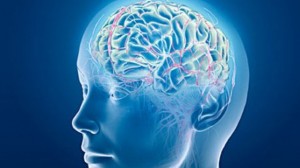What if brain scans could predict whether someone was more vulnerable to relapse?
 In addiction recovery, relapse is most often caused by external cues and stress that act as triggers for cravings. New research is finding the area of the brain that might be responsible for why some recovering addicts are more vulnerable to relapse than others.
In addiction recovery, relapse is most often caused by external cues and stress that act as triggers for cravings. New research is finding the area of the brain that might be responsible for why some recovering addicts are more vulnerable to relapse than others.
A study, published in JAMA Psychiatry, found that recovering addicts who had elevated activity in the region of the brain known as the ventromedial prefrontal cortex or vmPFC (even when relaxed) were eight times more likely to relapse within 90 days than those whose vmPFC activty was lower when they were relaxed. (Healthland.time.com)
The study monitored the brain activity of 45 recovering alcoholics, who were in a 12 steps AA program, and had been sober for four to eight weeks. The researchers studied each person during three different types of experiences: a stressful one, one that involved a common trigger to drink, and a relaxing one. Personalized video experiences were created for each person to watch during an MRI brain scan. The brain activity patterns were then compared to 30 social drinkers of similar age, intelligence and gender who were not in recovery.
The scientists found that while the recovering alcoholics appeared to be relaxed during those relaxing experiences (their heart rates fell, etc.), their brains (especially the vmPFC) told a completely different story. That region of the brain remained hyperactive all the time, as if stuck on the ready-set-go mode. The recovering alcoholics also showed an increase in activity in the part of the brain associated with reward and pleasure (cravings) even while relaxed.
And when the body was placed under stress, the vmPFC region registered differently in the two groups. In the social drinkers group, the response to stress was normal. The brain responded as it should to a challenge, it readied itself and then calmed down after the fact (think: peak then fall). Whereas, the recovering alcoholics’ brains remained more flat or blunted during the stressful experience. This difference could be a major clue in who is at risk for relapse. Those with a more active or sensitive vmPFC could be more vulnerable to cues and triggers that can cause relapse.


